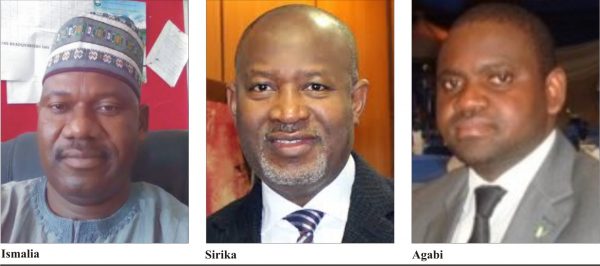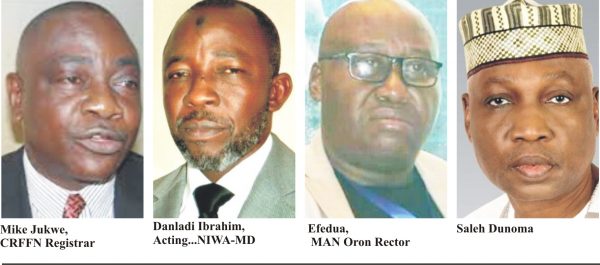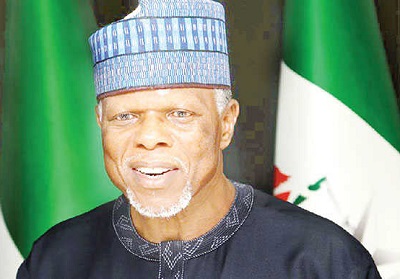Nigerian Airports And The Missing Economic Regulator
By Okuneye Moyosola
Six years after the former Minister of Aviation, Mrs. Stella Oduah presented a National Civil Aviation policy which stressed the need for an autonomous Economic Regulatory Unit to address numerous challenges in the aviation sector; nothing has been done by the government in this regard.
As the new administration of Senator Hadi Sirika as Aviation Minister kicks-off, aviation stakeholders are divided on the issue of airport concession which was not actualized during the last administration and there is a growing need for an independent economic regulator in the aviation sector.
Recall that Sirika while making a case for airport concession in the past lamented that government could no longer sustain the twenty-two airports in the country. This reinforces the need for airport concession. However, government has treated the issue of having an independent economic regulatory body with levity despite its role in ensuring that charges paid by passengers and activities of operators are regulated when the airports are concessioned.
There are also indications that the aviation sector may face an economic regulatory tragedy similar to the maritime sector, which was occasioned by the seaport concession without an economic regulator to control the commercial drive of the concessionaires.
The concession of the seaports in 2006 without an economic regulator coupled with the absence of antitrust law in the sector led terminal operators and shipping lines to increase their charges arbitrarily just as several frivolous charges were introduced. These problems led to a presidential directive by former President, Goodluck Jonathan for the Nigerian Shippers’ Council (NSC) to become the port economic regulator, a development that has attracted several court cases by terminal operators and shipping lines.
According to National Civil Aviation Policy developed in 2013 by Stella Oduah, the aviation industry has changed significantly over the last twenty five years with growing trend for the commercialization of the sector, shifting from their roots as government organizations towards fully independent entities that operate on the basis of a commercial business. In countries like USA, UK, South Africa and India, an independent Economic Regulatory Unit with a Single Till System has been introduced as a way of improving the efficiency of operations and investment whilst reducing losses from the anticipated economic benefits.
The National Policy had stated that “in order to minimize the potential misuse of market power by aviation service providers and to foster a competitive, efficient and fair commercial environment where passengers receive quality services at reasonable prices, the Federal Government will establish an autonomous Economic Regulatory Unit under the office of the Honourable Minister that will become an Agency with time”
Nevertheless, the Nigerian aviation industry is set to put the cart before the horse with plans to concession without any arrangement to establish an economic regulatory agency to control the economic, commercial and financial practice of the aviation service providers and ensure that all aviation tariffs and charges commensurate with the services provided.
The aviation ministry has six parastatals with their core functions as follows: Nigerian Civil Aviation Authority (NCAA) vested with the responsibility for safety oversight of the aviation industry in accordance with all international conventions and agreements, government policies and ICAO Standards and Recommended Practices (SARPs); Nigerian Airspace Management Agency (NAMA) is responsible for the provision of air navigation services, air traffic services, aeronautical telecommunication services and aeronautical search and rescue in accordance with Nigeria Civil Aviation Regulations (NCARs); Federal Airports Authority of Nigeria (FAAN) is responsible for airports development and management.
Nigerian College of Aviation Technology (NCAT) provides aviation related training, research and consultancy services for air transport service providers and allied businesses; Nigeria Meteorological Agency (NIMET) responsible for the provision of meteorological services to the aviation industry. NIMET is also responsible for providing services to the marine, energy, agriculture and water resources industries, as well as preparing and interpreting government policy on meteorological and climate services; and the Accident Investigation Bureau (AIB) responsible for accident prevention, investigation of any accident or incident arising out of or in the cause of air navigation and occurring in or over Nigeria or occurring to Nigerian aircraft elsewhere in accordance with ICAO. AIB also has responsibility of family assistance for victims of air accidents and incidents.
It should be noted that none of the government agencies in the aviation sector is saddled with the responsibility of regulating monetary activities. Like the maritime sector, there is also no legal provision for the airports concession.
In an airport ownership and regulation booklet commissioned by International Air Transport Association (IATA) and researched by Deloitt, economic regulation is needed to prevent market abuse, secure efficiencies and ensure service quality. When combined with limited or weak economic regulation, all models (private or public) can lead to adverse outcomes; however, there are additional risks with airports that have private ownership.
According to the book let, best practice indicates that regulators must be centralized, appropriately funded, independent, have a clearly defined mandate; and be endorsed by governments and defined in legislation. Regular assessment of an airport’s market power is needed to ensure that the regulatory function remains fit-for-purpose.
While some transport experts posit that the proposed National Transport Commission (NTC) bill would have covered the economic regulatory vacuum, NTC has been ditched by President Muhammadu Buhari on grounds that it would infringe on certain aspects of the Ministry of Transport.
NTC would have served as the economic regulator of all activities undertaken in Nigeria’s transport sector – maritime, road, rail, aviation and, inland waterways. It intended to address the current state of the transport industry by creating efficient transportation driven by intermodalism currently lacking in the country.
A peep into the prescriptions of the bill showed that the NTC was conceived to be an effective, impartial and independent regulatory authority that would provide mechanism for monitoring compliance of government agencies and transport operators in a regulated transport industry with relevant legislation/policies and advice government on matters relating to economic regulation of Nigeria’s transport industry.
Some aviation experts had also stressed that the sector was too technical to be bottled up under NTC. However, another group of stakeholders opine that NCAA is the economic regulator for the aviation sector and should play that role after the airports concession.
Speaking with MMS Plusnewspaper, an aviation consultant, Captain John Ojikutu noted that the responsibility of regulating charges at the airport was the duty of NCAA.
“There is a regulator. The same regulator that regulates security, safety regulates economic aspects. In the civil aviation regulation, it is there that all the operators including the airport operator will submit their balance sheet every year to NCAA. So, NCAA will know whether the company’s Certificate of Operation would be withdrawn or re-validated to continue their operations. There is the Civil Aviation Act that tells NCAA what to do. There is a civil aviation regulation that regulates every operator in the industry. NCAA is like a policeman” he said.
The question is, if NCAA is the airport economic regulator, why do airlines increase the price of airfares and make passengers pay for services that are not commensurate with the money paid? Does NCAA really have the onus of the airport economic regulator or it is simply a regulator for aviation safety?
Buttressing the need for an independent economic regulatory Unit in the sector, the President of Transport Correspondents, Mr. Chris Agabi lamented that NCAA has been unable to regulate its core functions in the aviation industry effectively.
“If such economic regulatory body comes into fusion, it will regulate economic activities of all the transportation sectors. It is good to have such an independent body because there is a lot of confusion right now in the sector. NCAA is not living up to expectation in regulating the sector. There are different charges here and there. Sometimes it’s difficult to get these things resolved even if you go to the NCAA”
“When the airlines do not provide commensurate services to passengers, it is difficult to get justice. There are several issues that we need an independent body to look at. The National Transportation Commission would have been a very good option. We don’t need a separate body for the aviation sector because that may lead to duplication of functions. However, if we have one regulatory body for the entire transportation sector, it will be a better way of regulating the sector in a more viable way” he said.
Contrary to these views, the Director, Transport Research and Intelligence, Nigerian Institute of Transport Technology, Dr. Danjuma Ismalia, stated that the aviation industry does not need an independent economic regulatory unit other than NCAA.
“The NCAA has the aspect of economic regulation. They have the technical aspect which is for safety regulation and the economic part of its regulation is the Bilateral Air Service Agreement (BASA) which allows foreign airlines to enter one airport. On the issue of competition, all the NCAA needs to do is to regulate the allocation of the routes to ensure fair competition and eradicate monopoly as well as exploitation” he opined.
According to Ismalia, no country in the world has a separate agency under aviation that is in charge of economic regulation.
“It’s the same CAA that is in charge of economic regulation all around the world. It is only one other body that is in charge of protection for consumers and that is what we call the Consumer Protection Council which we have in Nigeria. They can come into the aviation sector and try to protect the consumers from unnecessary exploitations by any operator. If NCAA is not capable of exercising their responsibility, the Consumer Protection Council can exercise that responsibility. Right now, If you have a complaint as a passenger, you can lodge your complain in two places which are the Consumer Protection Council or with NCAA. There is also a department in NCAA called consumer protection which is protecting the interest of passengers and the relationship between the airport operator and the airlines too. There is no need for duplication”.
IATA supports strong, robust, independent and effective economic regulation. Regulation is required to protect users against providers’ potential abuse of their dominant position, especially privatized or profit-maximizing providers. Effective economic regulation of airports would also improve productivity and encourage timely and cost-effective new investment.
In accordance with ICAO’s policies on charges, which state that the economic regulation of airports is a state’s responsibility, regulators should be independent from the operation and provision of airport and air navigation services; NCAA can’t play the role of an economic regulator.
In the absence of strong economic regulation, operators can arbitrarily increase their prices, resulting in excessive and unjustified profits, yet inefficient services. Economic regulation is both necessary and desirable to constrain this market power and deliver continuous improvements in cost efficiency and quality of services in the industry.
If Nigerian airports must be concessioned for efficiency, competition and growth of the aviation sector, there would be need for the government to create an independent economic regulator in the aviation sector. Even now, such economic regulator is needed for a more viable aviation sector.








